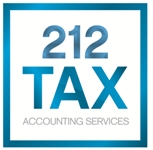The New York City apartment search is unique both in its prices and its practices. The city has tried to govern the market with more than 1 million rent stabilized apartments. However, these apartments are often passed down generations or reserved for lower-income families. Therefore, many New Yorkers try to secure long-term leases with agreed upon annual rent increases. This way, tenants avoid signing year-to-year, seeing enormous rent increases, then starting the apartment search all over again. But whether living in a rent stabilized apartment or long term leased apartment, both groups of tenants have the opportunity for a buyout.
Rumors regularly make the rounds about record buyout amounts, with figures reaching as high as $1.5 million for Central Park South addresses. Therefore, even a few percentage points of difference in the applied tax rate can result in a significant loss or gain.
The way settlements like these are taxed is often debated and always confusing. Essentially, lease buyout tax treatment can either be considered part of your normal income or long term capital gains. If the payout is taxed as regular income, you can expect to pay as high as 39.6% for the Federal tax rate. Capital gains on the other hand, is taxed at a maximum rate of 20% if you held the lease more than one year.
Capital Gains
Payments received by a tenant for the cancellation of a lease are treated as amounts realized from the sale of property according to the tax provisions of §1241. Any gains involving a leasehold of a capital asset would be treated as capital gains under § 1221. Alternatively, if the lease or agreement is a Section 1231 property, the taxpayer would have a Section 1231 gain or loss. Furthermore, the cost of any home improvements can be added to your cost basis, which reduces the total taxable gain.
Ordinary Income
Conversely, if the §1241 provisions are not satisfy, it may be argued that the property right may not be treated as a capital asset and therefore, capital gains are strictly applicable to your assets in this case, as the renter obviously does not own the property, any money they receive should be treated as ordinary income, as it did not come from one of their capital assets. This would cause your income for the year to be inflated, which risks moving you to a higher income tax rate. If you are already taxed at the highest income tax rate, you would forfeit more of the buyout amount than if it were treated at the lower capital gains rate.
The IRS is yet to take an official stance on lease buyout tax treatments. Therefore, depending how you file, it could be subject to either of the above rates. As always, it comes down to the fine print. How the contract is written and the supporting evidence you lodge with your tax return will likely determine how the buyout is treated. These types of issues are complicated and are often the first to be scrutinized. It is therefore important to ensure your return is accurate and complete. To schedule an appointment with 212 Tax, visit our Contact Us page.
Request a Consultation
We are able to work with your unique schedule including after-hour appointments, most weeknights, and weekends.
Call to action
Build Growth Opportunities with Extensive Business Financial Services
We serve clients in a range of industries, including hospitality, nightlife, real estate, legal, and medical.


